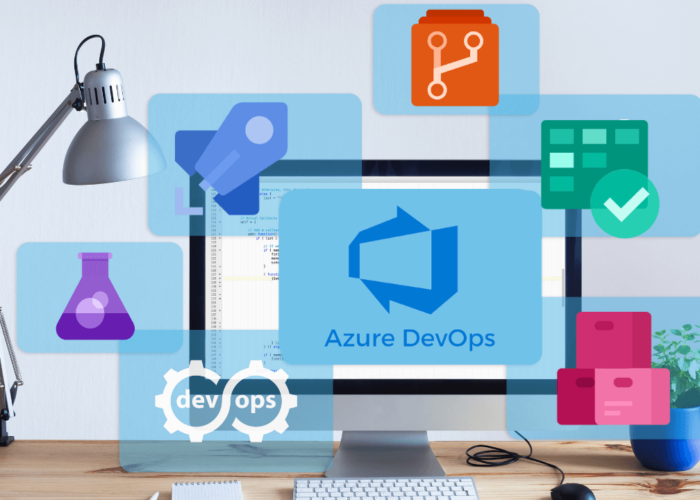Implementing DevOps in your company can help you to achieve great results. But what good is that if security isn’t prioritized? In this article, we’re going to explain everything you need to know about the DevSecOps methodology, what it is and its benefits.
What is DevSecOps?
DevSecOps is short for development, security, and operations. This approach enables automation, monitoring and enforces security across all phases of the software and application development lifecycle, including initial design, planning, development, integration, testing, deployment, and monitoring.
In order to understand the evolution of DevSecOps let’s head back a few years in time. In the past, security was attached to software at the end of the development cycle by a separate security team, and it was also tested by a different quality assurance team.
That way of doing things was fine when software updates were released one or twice per year. However, as we aim to reduce software development cycles to weeks, the old approach to security wasn’t very practical. Instead, DevSecOps addresses security issues as they arise before they are put into production. This also means they are easier and less expensive to fix. It’s also a shared affair. That is to say, the responsibility of making application and infrastructure security is spread between teams rather than the security team alone. The motto for DevSecOps is “software, safer, sooner”, meaning that it automates the delivery of a secure software without slowing down the development cycle.
Benefits of DevSecOps
Increases and improves the level of security
Security is one of the main benefits of DevSecOps. By introducing so-called proactive security throughout the development process, these issues are addressed as soon as they are identified, and therefore, not only will it be more secure, but when responding to incidents (such as patching security vulnerabilities), the reaction is quicker and more efficient.
Automation
Automation is another important benefit of DevSecOps, it is the common denominator.
Automated security tests and checks are added to all phases of development with DevSecOps, which equates to a higher level of security in a CI/CD system. These tests ensure that the code passes to the next phase with an adequate level of security.
Two of the most widely used DevSecOps initiatives are the automation of the vulnerability management process and open-source configuration scanning.
Automation facilitates development, security, and operational roles in the unified DevSecOps team to collaborate and scale their perspectives across the SDLC, regardless of the deployment framework.
Delivery rate increases and reduction in expenses
One of the main reasons why software delivery is delayed is security issues. The time required to deliver increases considerably when a lot of time is required to eliminate problems and correct code.
Unlike the conventional DevSecOps approach, with integrated security, security issues are reduced, detected, and eliminated at each and every stage of development, and this, in turn, speeds up delivery times and ensures a high level of security.
Costs are also reduced by not having to make constant changes for security reasons, just as delivery times are reduced. By planning and involving security teams in all phases of development, security-related issues are minimized, resulting in lower cost delivery.
Openness and transparency are supported from the beginning of development
DevSecOps promotes a culture of openness and transparency from the earliest stages which is beneficial for everyone. Ultimately, it increases sales as it is much easier to sell a demonstrably secure product.
Difference between DevOps and DevSecOps
When talking about the difference between DevOps and DevSecOps, let’s take a look at the terminology. The word DevOps is a combination of two words: development and operations that represents the ability to deliver applications and services at a much faster pace and improved efficiency than with traditional development methods. DevSecOps, on the other hand, is a combination of three words: Development, Security and Operations. That is, it incorporates security practices within DevOps environments.
DevOps it’s a methodology that aims to link the Development and Operations teams for better collaboration. DevSecOps however, is a methodology that is integrated into the DevOps process and incorporates security into every aspect of the development process.
The main goal for DevOps is to break the silos between Development and Operation teams by developing and automating a continuous delivery pipeline. Instead, DevSecOps aims to move security throughout the lifecycle and provide built-in security practices in the continuous integration pipeline.
In short we can say that DevOps is about boosting productivity and adding efficiency to speed up the product launch lifecycle whereas DevSecOps is all about automation of security and implementation of security at scale, the idea is to embed security in the architecture design from the get go.
-You might find this article of interest: 6 DevOps trends and capabilities for 2022 –
CONCLUSIONS
In summary, the best way for companies to take advantage of the DevOps concept is to jointly implement DevSecOps, that is, by incorporating security measures into software and data from the beginning of its development. The purpose and intent of DevSecOps is to build on the mindset that “everyone is responsible for security”.
If you think your organization needs help with that journey and wants to know more about it, do not hesitate to contact us for more information.


Benefit from the advantages of infrastructure automation and DevOps practices in your business with Chakray's experience and advice






